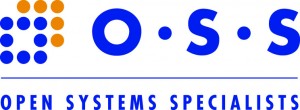Stream Brainstorm
We’re starting to brainstorm possible streams and sessions for NetHui 2011 and are talking to potential stream leaders to take a lead in organising each set of sessions.
The list below is a starting point – by no means final. These streams could be expanded, split, trimmed, or otherwise reallocated with your input. Fire your thoughts into the comments or email me at richard@internetnz.net.nz .
If you want to get involved in stream or session leadership then also either post a comment or email me.
——–
Overall theme: Shaping the Future Together
Access and Diversity – [Edited] Reducing inequalities and ensuring diversity in usage of, and benefit from, the Internet
Digital skills
Digital divide
People with disabilities
Diversity
Cybercitizenship – creating an online environment the public can have confidence in
Online privacy
Online safety
Youth issues (beyond social networking)
Digital citizenship
Cybersecurity
Governance and Legal – addressing the impact of the Internet on society and its laws
Internet governance
Current legal issues
Current regulatory issues
Convergence issues
International issues (including treaties)
Internet & Human rights
E-commerce issues
Government and Openness – exploring how the open nature of the Internet can affect Government
Open government, e-participation
Local government issues
Internet & activism
Politics and the Internet
Innovation and Emerging Issues – dealing with incoming technologies and issues
Cloud computing
Social media
Internet of things/IPv6
Mobile Internet & Apps
Open/linked data
Location based services
Green ICT
Education – preparing youth for the future
Technical education
Distance education
Teacher education
Educational resources
Discuss this now in the Forum











